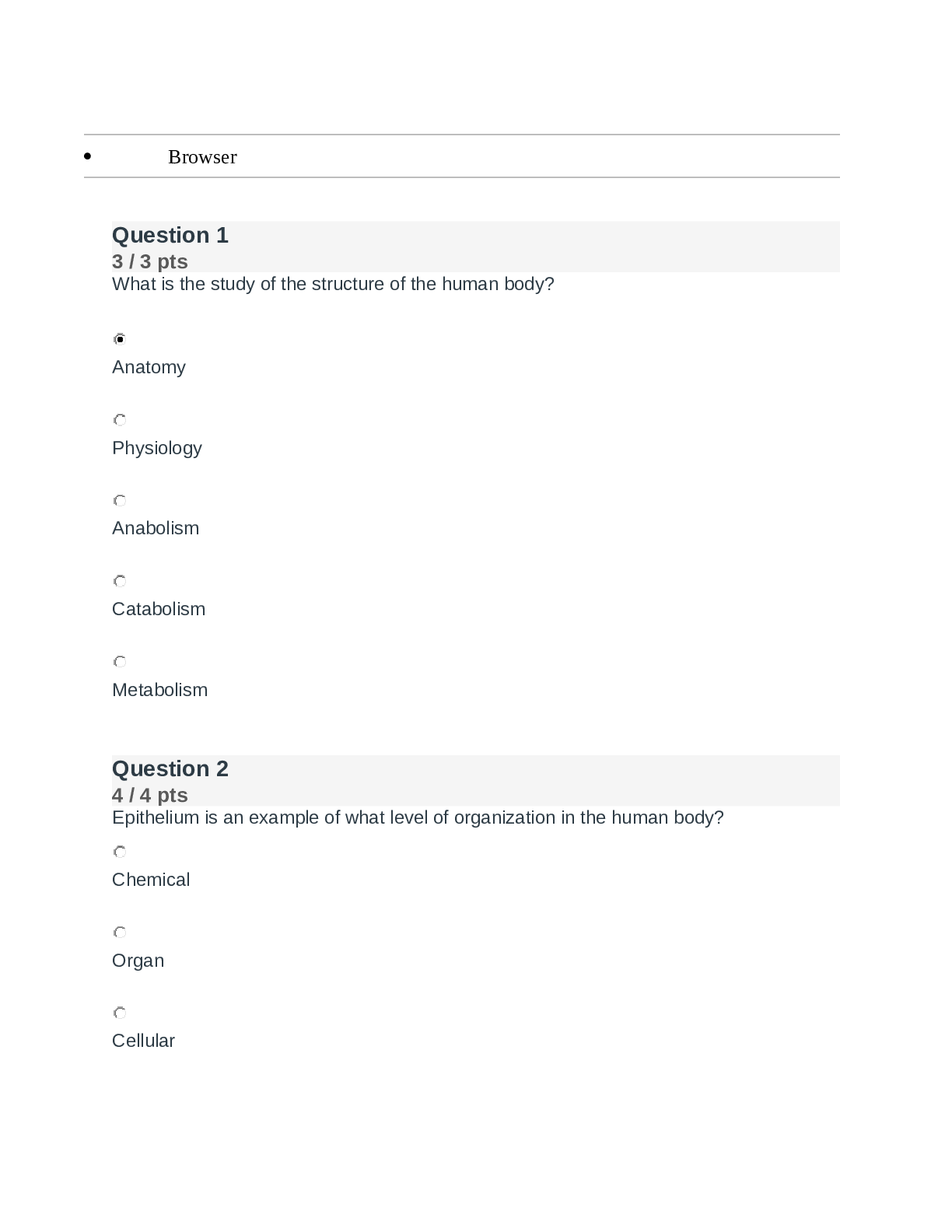Pharmacology > Final Exam Review > NURS 1102 – Applied Pharmacology Final Exam Review 100% grade A+ (All)
NURS 1102 – Applied Pharmacology Final Exam Review 100% grade A+
Document Content and Description Below
Words to know: Obtunded- decrease level of cautiousness Gastroscopy- A gastroscopy is a test in which a gastroscope (a long flexible tube) is passes through the mouth and back of your throa... t into the upper digestive tract. Postpartum- following childbirth (as it pertains to the mother) Eye meds: - cycloplegic- eye drop that causes paralysis of the ciliary muscle, resulting in loss of accommodation for 2-48 hrs. depending on the strength. Doctors use this to allow them to measure the patient visual acuity. -Miotic- eye drop that dilates the pupil. Used to treat glaucoma. -Mydriatic- eye drop that dilates the pupil. Used for certain eye exams and treatment of eye inflammations. Some meds to know” -donepezil (Aricept)- anti Alzheimer’s erythropoietin, epoietin (Eprex)-usually given subQ- anti anemic fluoxetine (Prozac)-SSRI- antidepressant Prioritization Maslow’s hierarchy of needs ABCs of life – Airway, breathing, circulation (First-Aid) NURS 1102 – Applied Pharmacology Spring 2016 What is the antidote for… Magnesium sulfate- calcium gluconate Heparin/Low molecular weight heparin- protamine sulfate Warfarin- vitamin K Acetaminophen- acetylcysteine (Mucomyst) Opiates-Naloxone (Narcan) Benzodiazepines- flumazenil. An example: any medication that end in zapame Digoxin- digibind Iron - deferoxamine Unit 2: Principles of Medication Action and Administration Review what can decrease absorption of medication, such as diarrhea, antacids, etc. o pH of stomach o Diarrhea o GURD o Antacids o Surgery o Dehydration Drinking water with medication can increase absorption of medication. Increasing absorption may do what to the onset of the medication? It can shorten the onset of the medication as more medication will have been absorbed into the body. How can constipation increase absorption of medications? Constipation prolongs the length of time the medication is in the intestines, allowing more medication to be absorbed. What are some factors, other than the aging process, that may affect distribution of medications? o Weight o Other medications o Heart disease o BP irregularities o Constipation/diarrhea o Nausea/vomiting Review the differences between side effects and adverse effects. o Side Effect: A side effect is an effect of a drug, chemical, or other medicine that is in addition to its intended effect. This effect can be harmful or beneficial, but a side effect is generally not considered to be an adverse or harmful effect. o Adverse Effect: In the medical field, an adverse effect is a harmful, undesirable effect that that result from a medication or other intervention such as surgery. They can be caused by an incorrect dosage or medical procedure, an allergic reaction, etc. NURS 1102 – Applied Pharmacology Spring 2016 Adverse effects may cause complications in a disease or procedure and negatively affect its prognosis. Adverse reactions are rarer and severe than a side effect and can be life threating. Adverse effects can be stopped by either adjusting the dosage of the medicine or completely stopping the drug. However, by then, adverse effects may have caused irreversible damage. What are idiosyncratic effects? Review terms, such as antagonistic, synergistic, etc. o Idiosyncratic Effects: Unexplained and unpredictable drug reactions o Antagonistic: Drugs that occupy a receptor and prevent the endogenous chemical from acting. o Agonist: drug that produces the same type of response as the endogenous substance. o Synergistic: the joint action of agents, as drugs, that when taken together increase each other's effectiveness Review metabolism and excretion of medications. o Metabolism of Medications: also called biotransformation, is the process of chemically converting a drug to a form that is usually more easily removed from the body. The liver is the primary site of metabolism. o Excretion: the process of removing drugs from the body; either by urine via the kidneys, or solid waste via the GI system. [Show More]
Last updated: 1 year ago
Preview 1 out of 14 pages
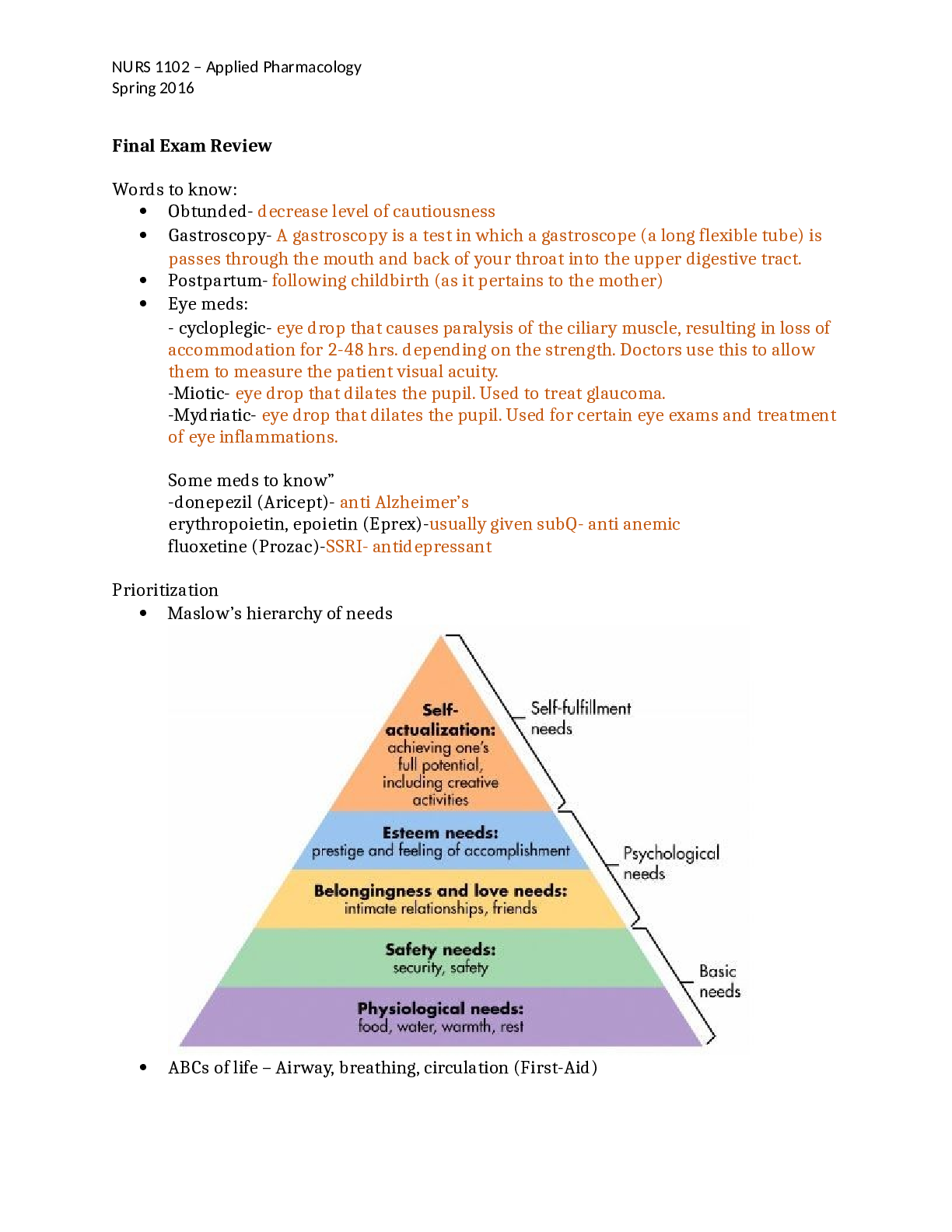
Reviews( 0 )
Document information
Connected school, study & course
About the document
Uploaded On
Jun 26, 2021
Number of pages
14
Written in
Additional information
This document has been written for:
Uploaded
Jun 26, 2021
Downloads
0
Views
103

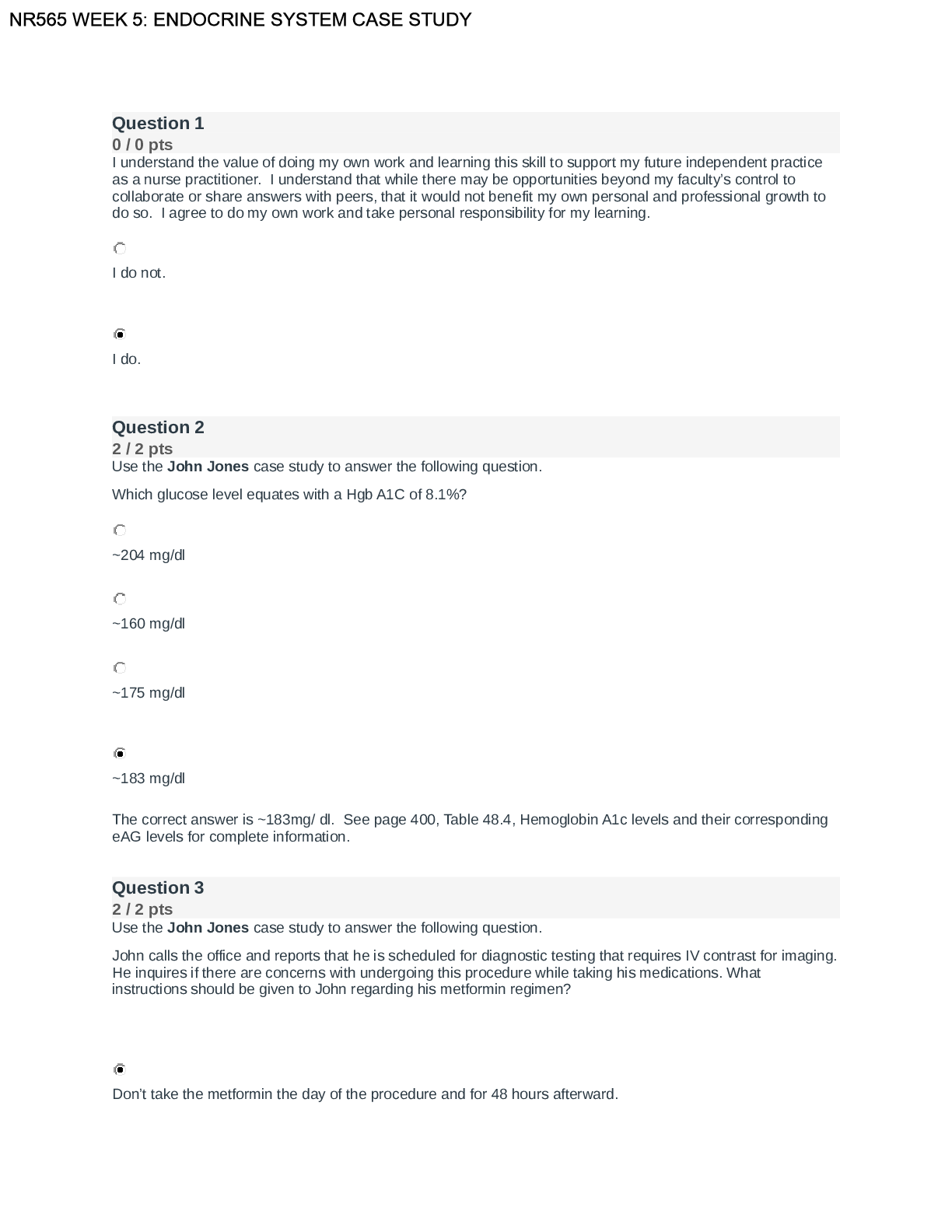
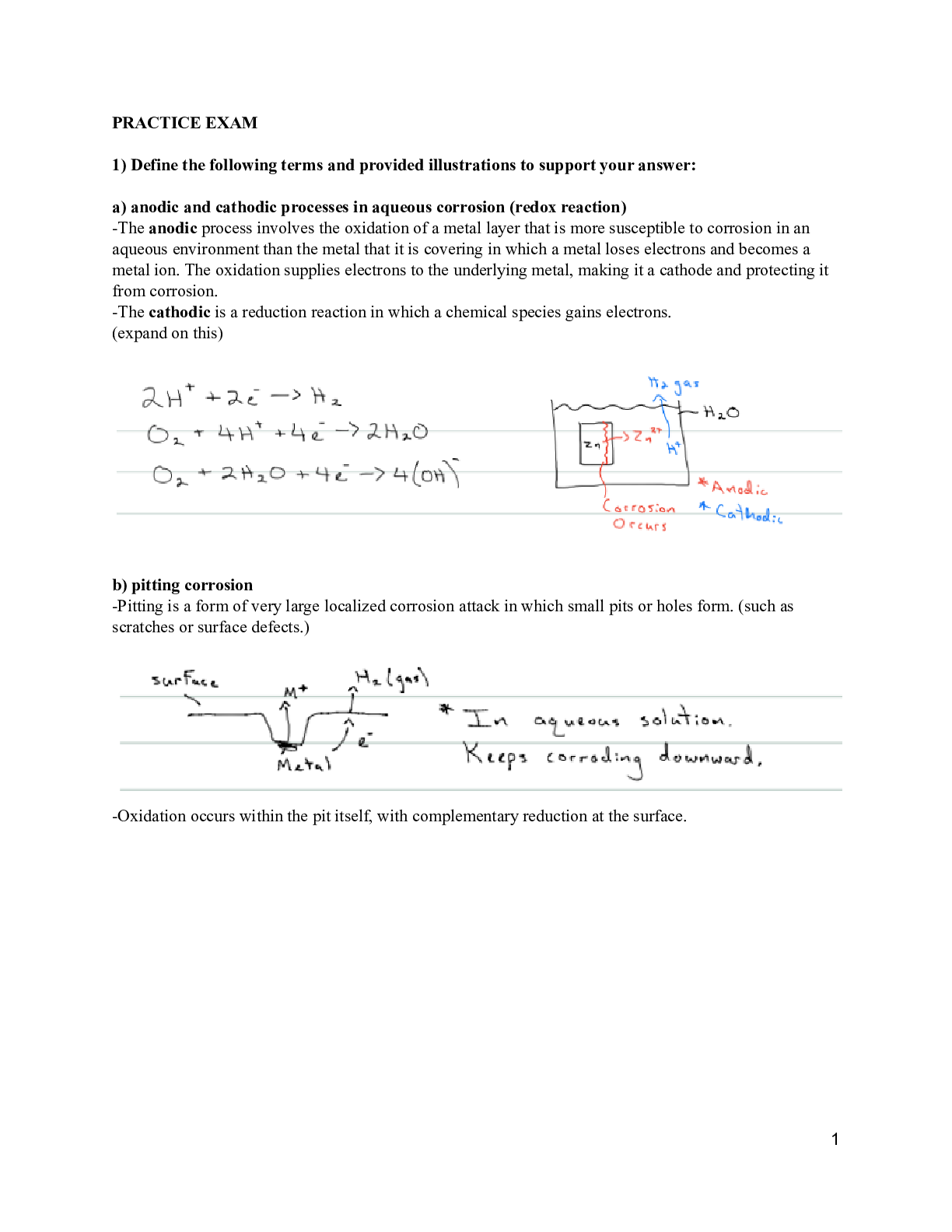
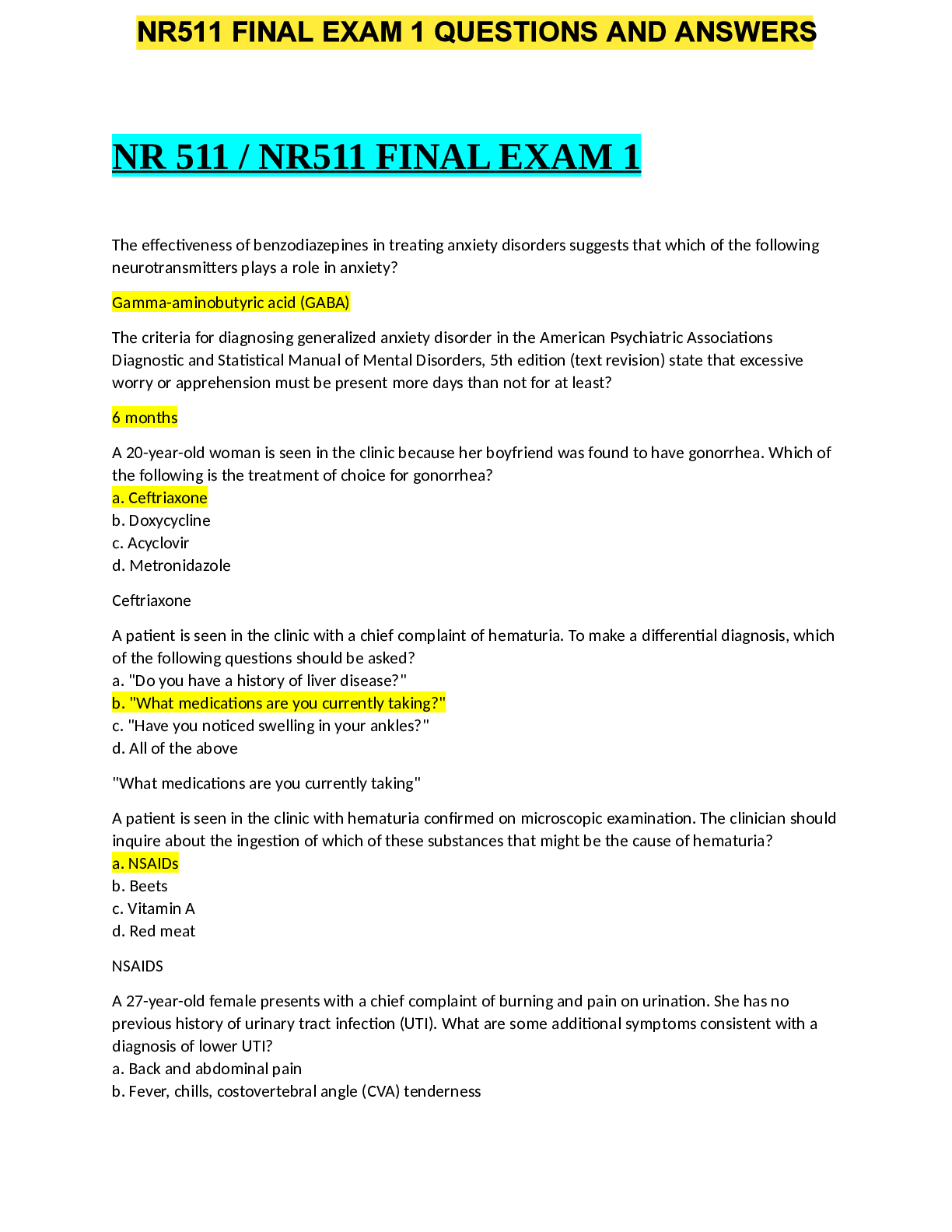

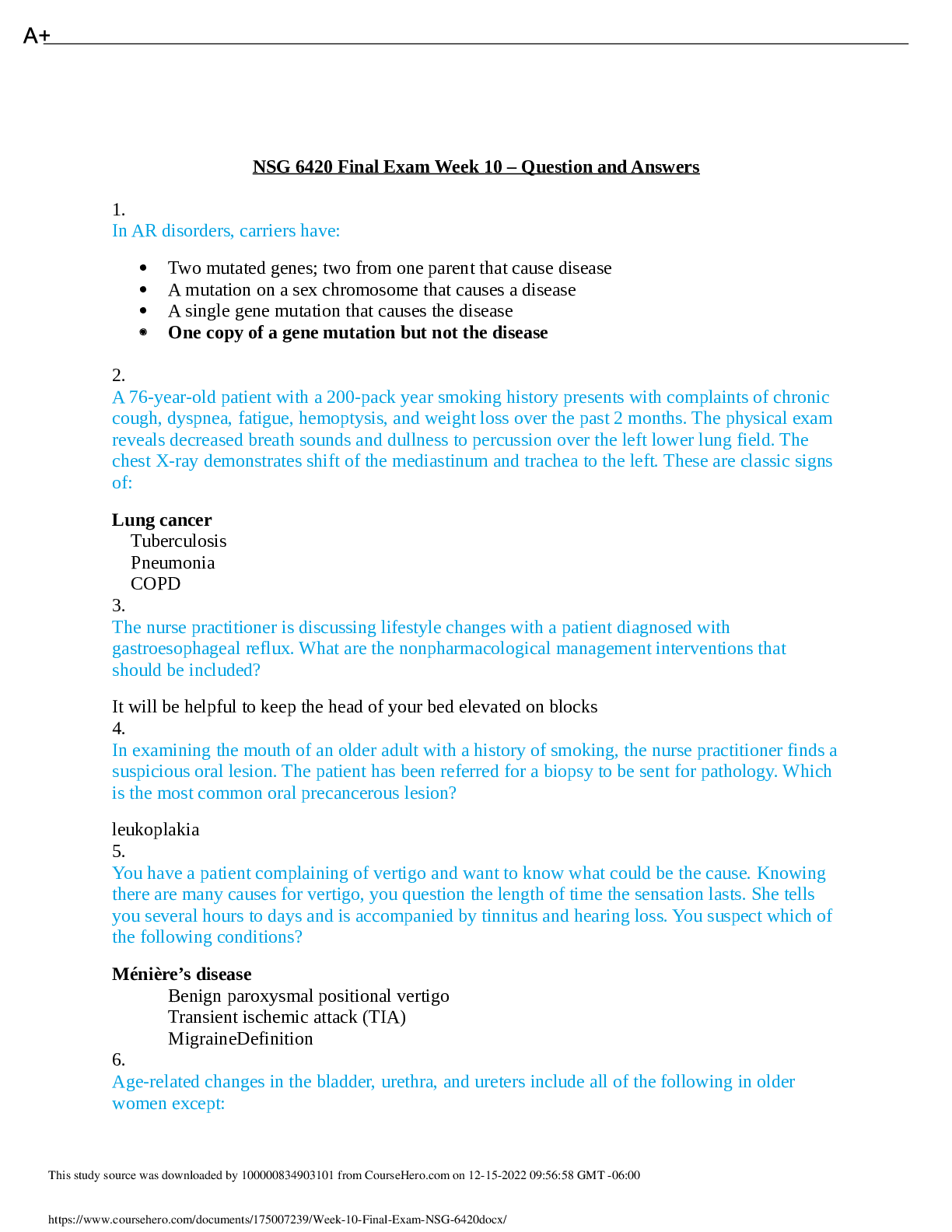
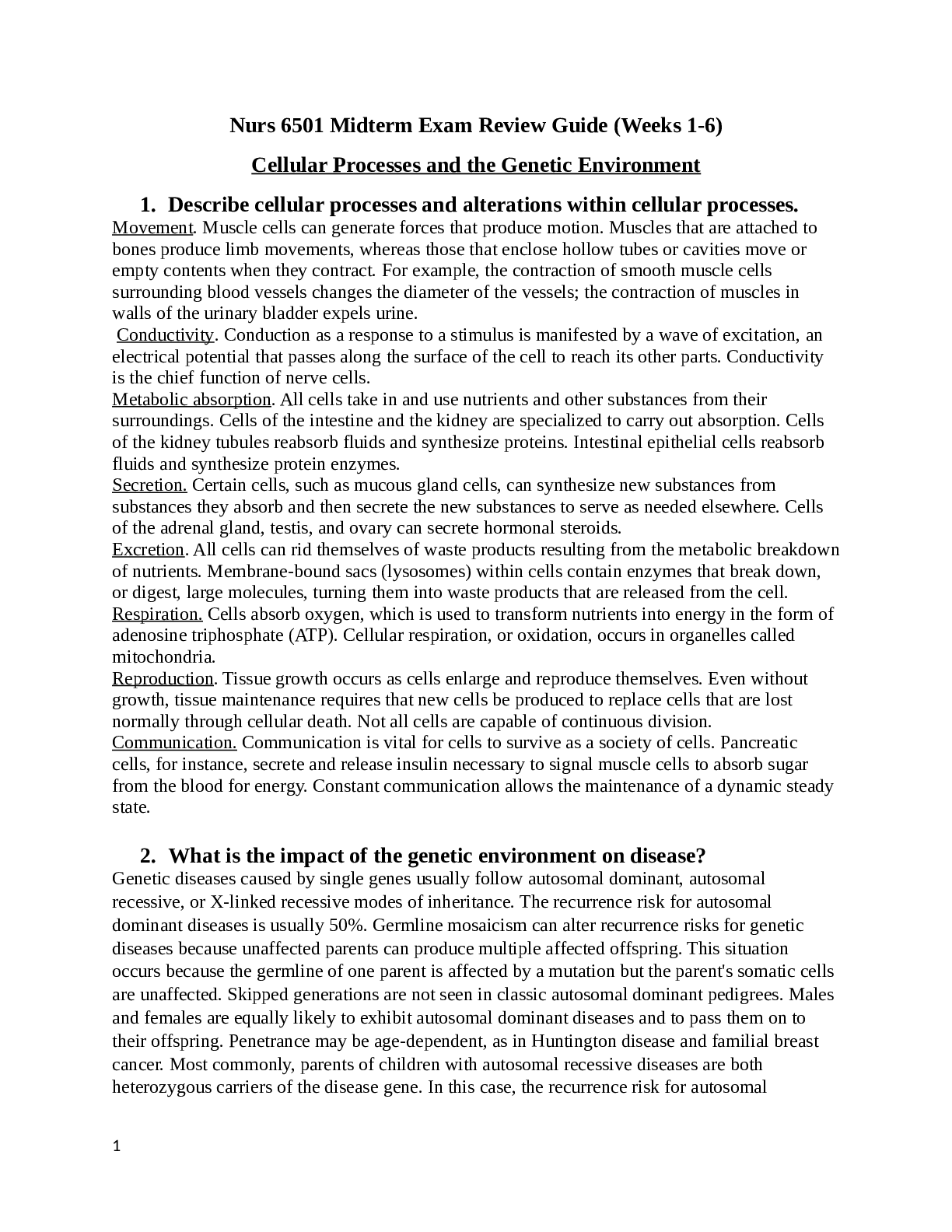
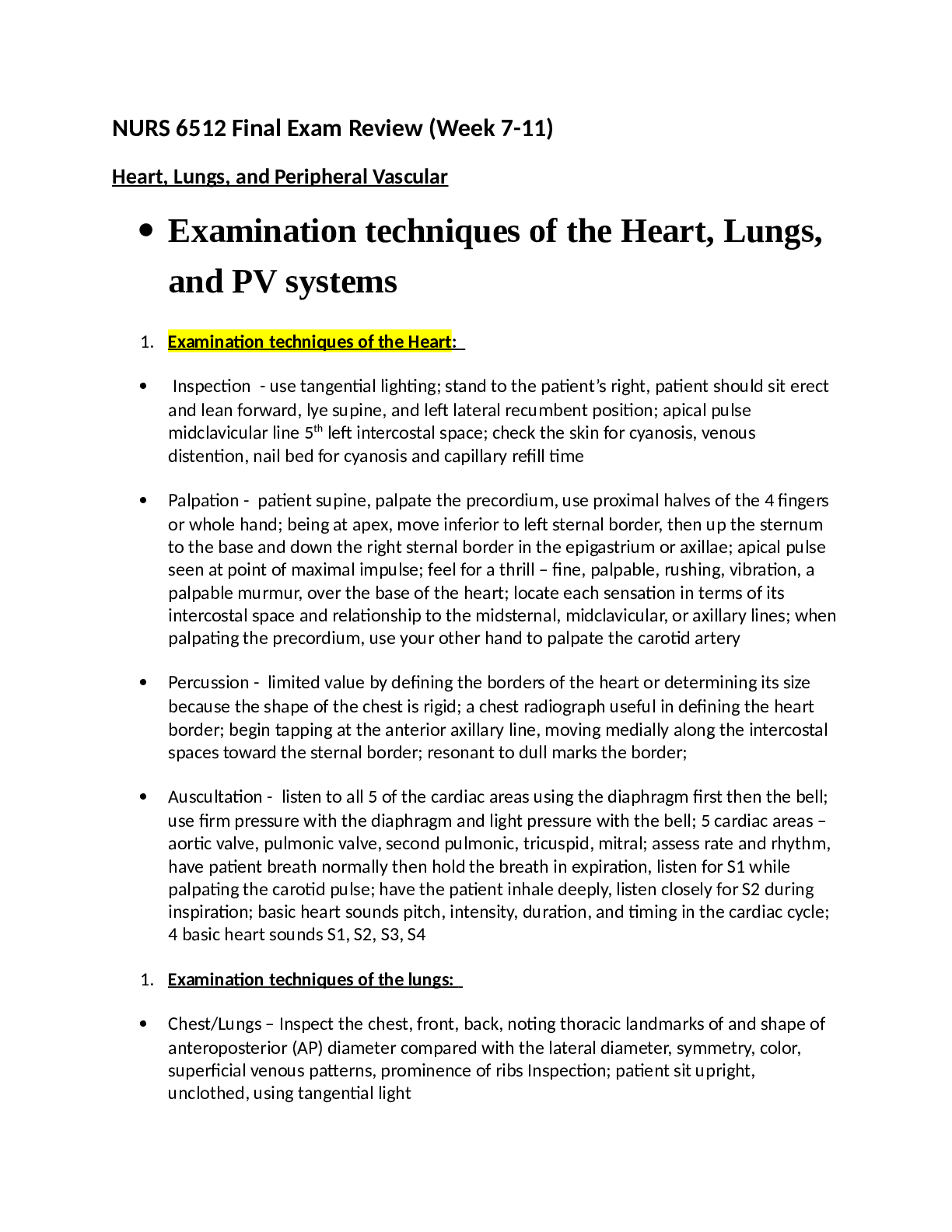
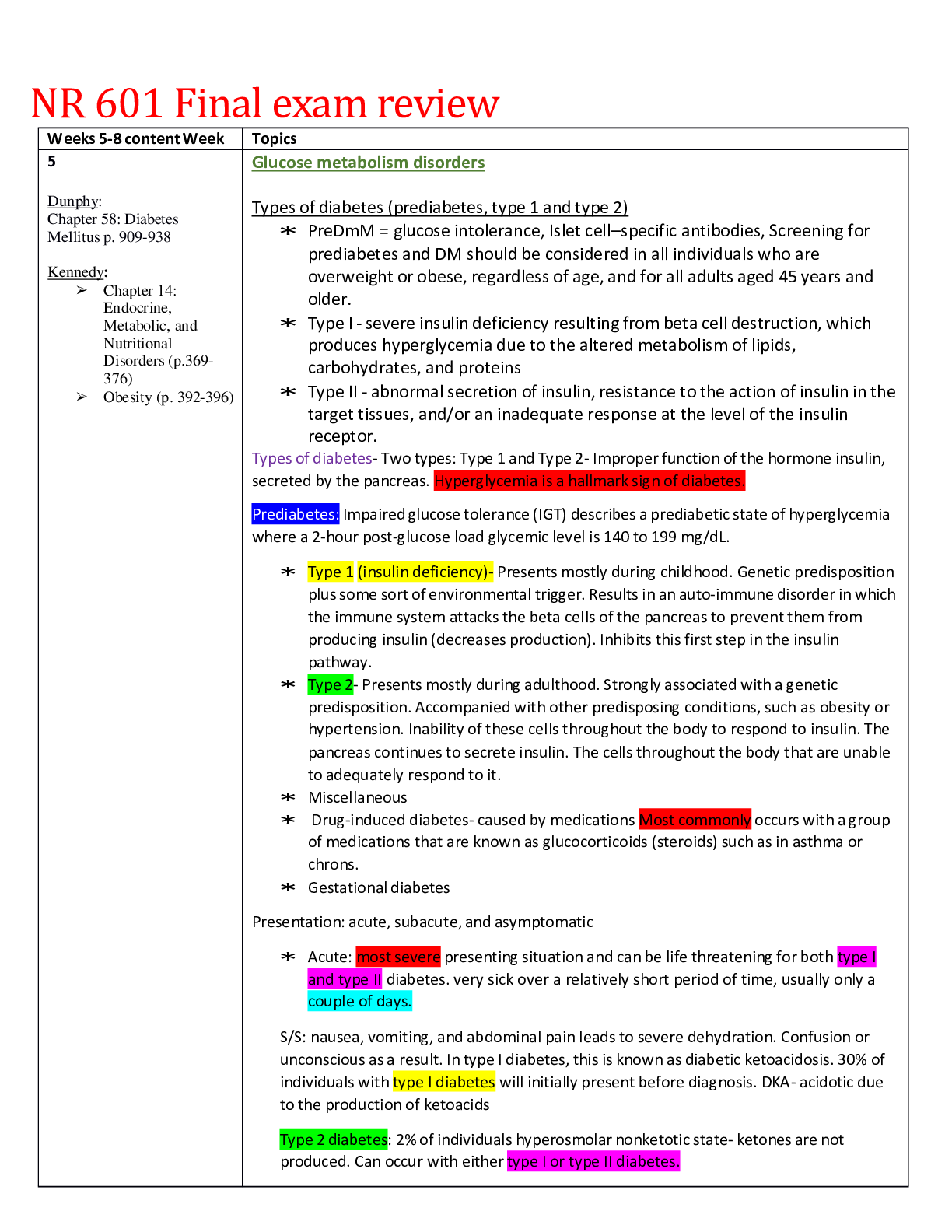
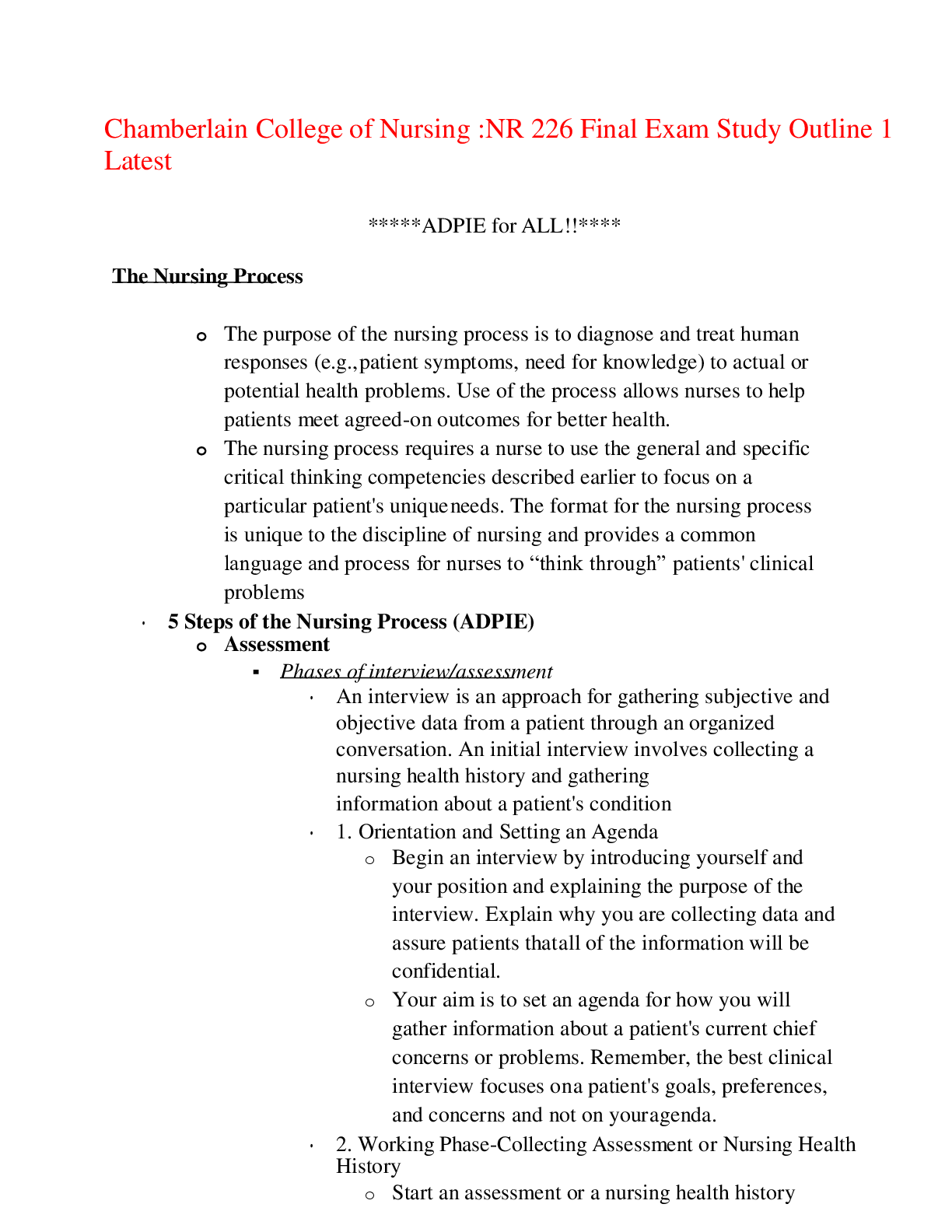
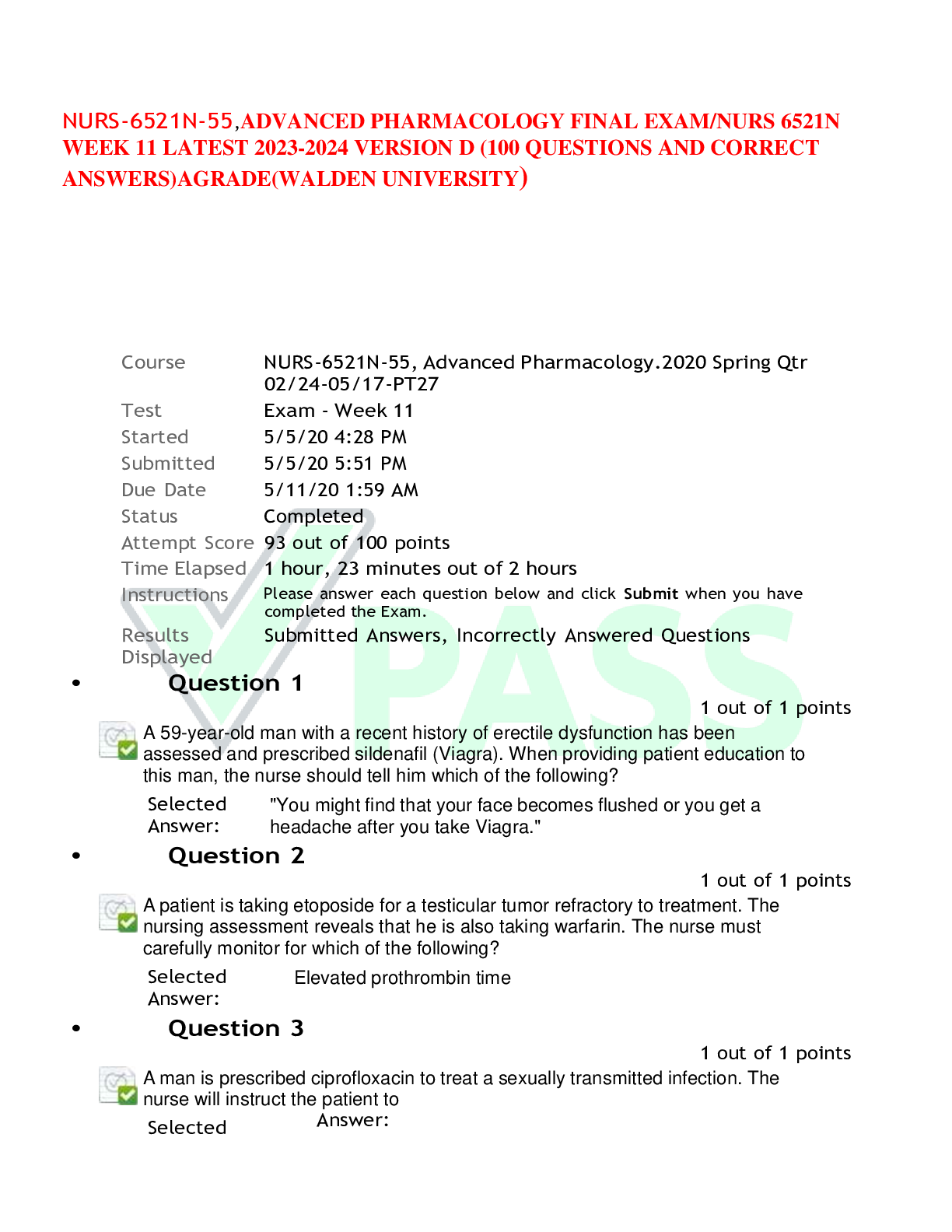

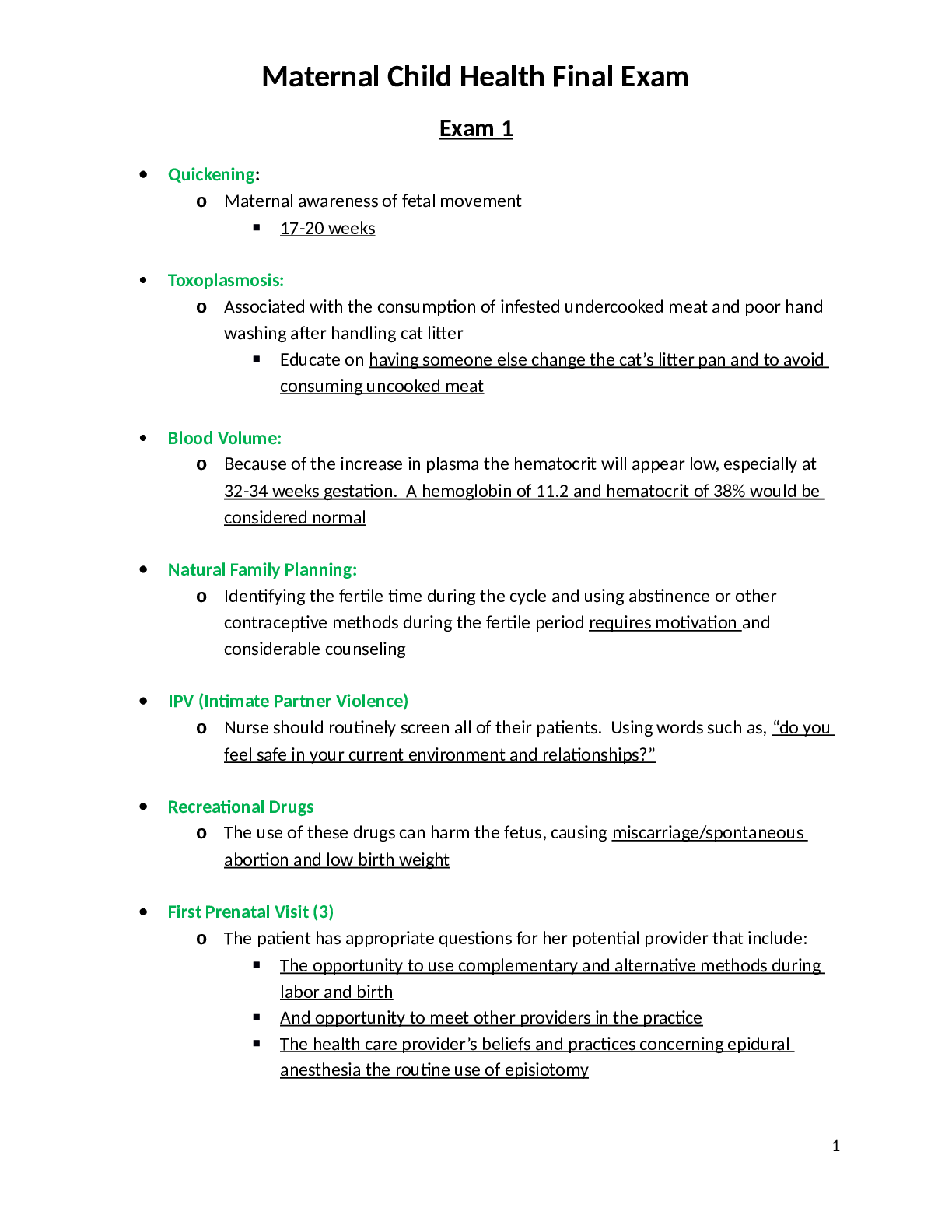

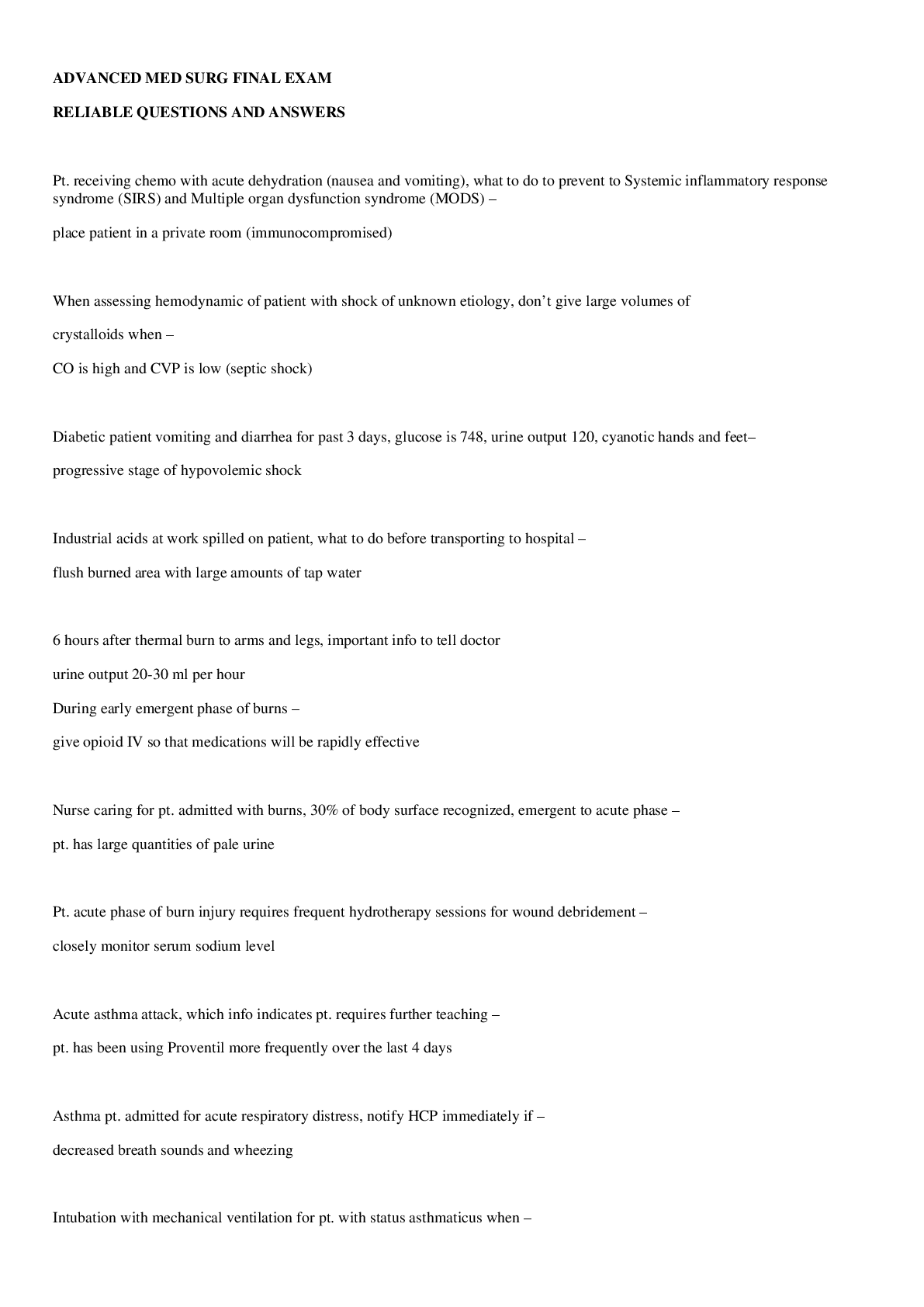
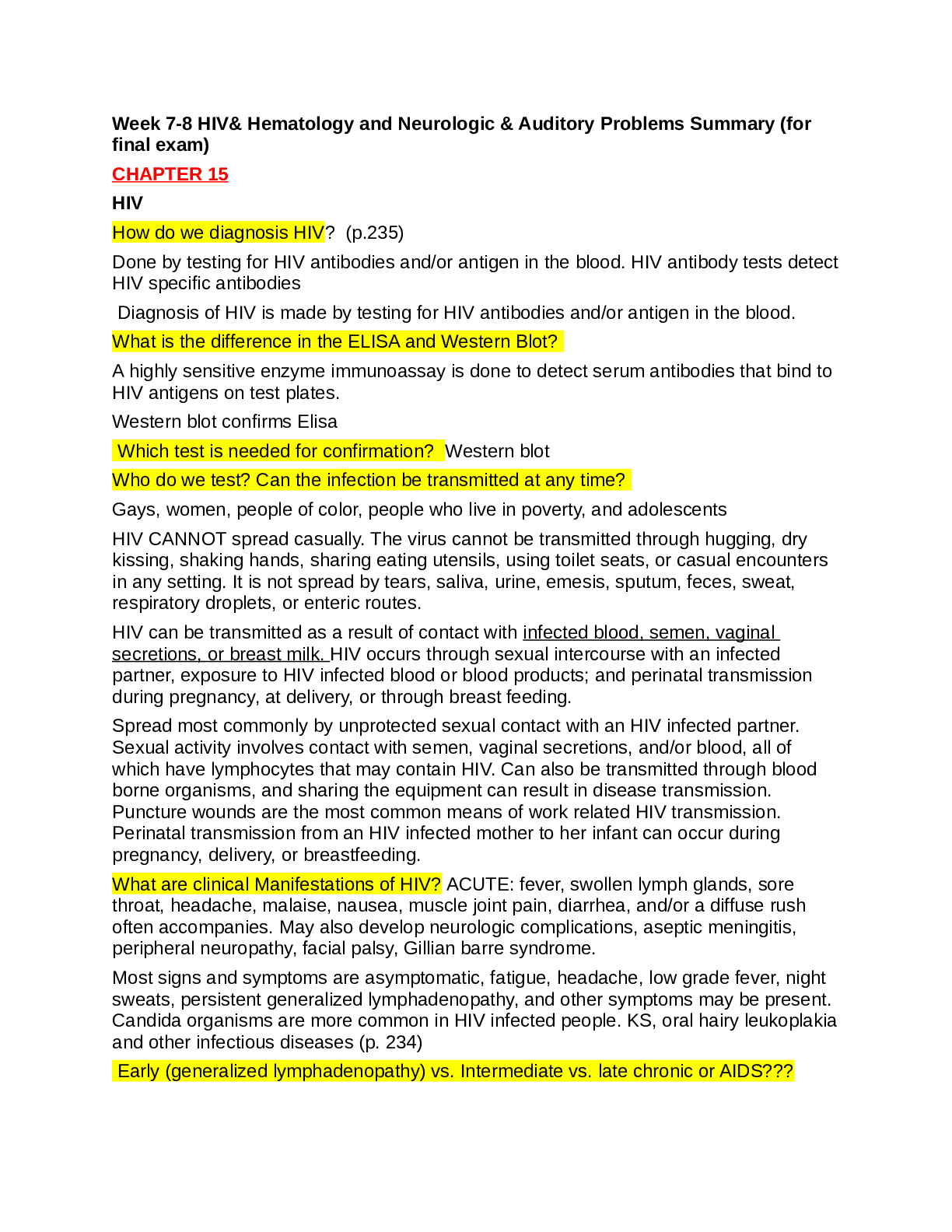
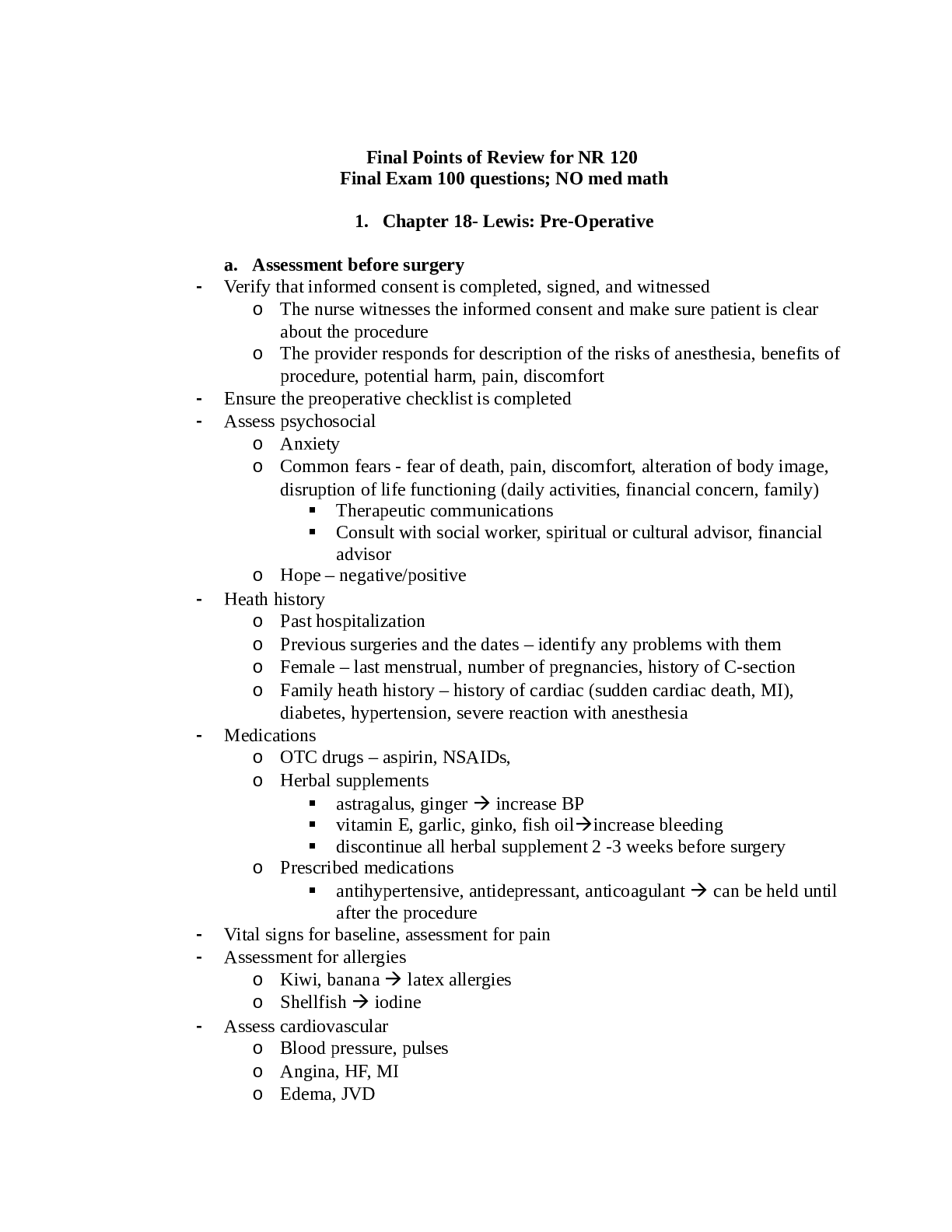
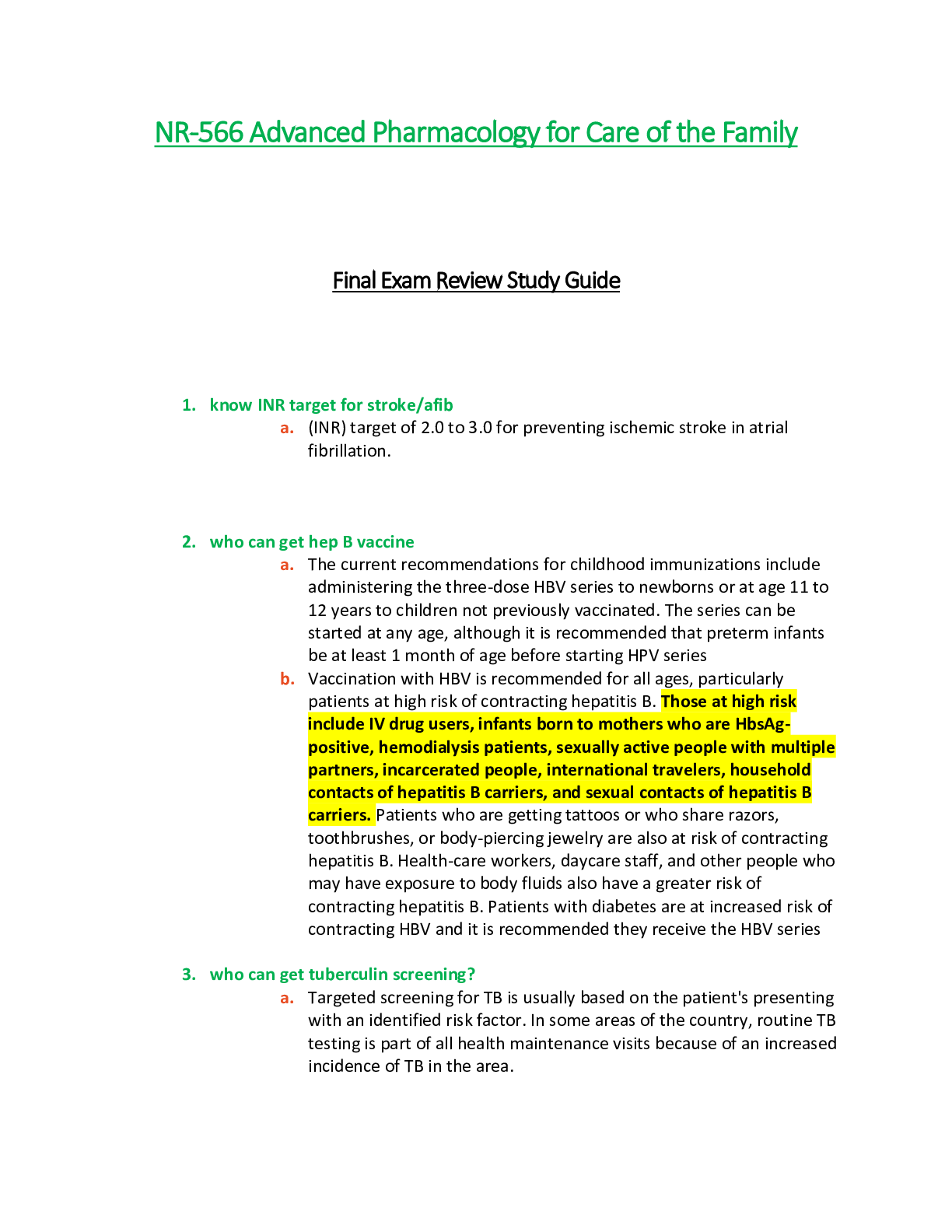
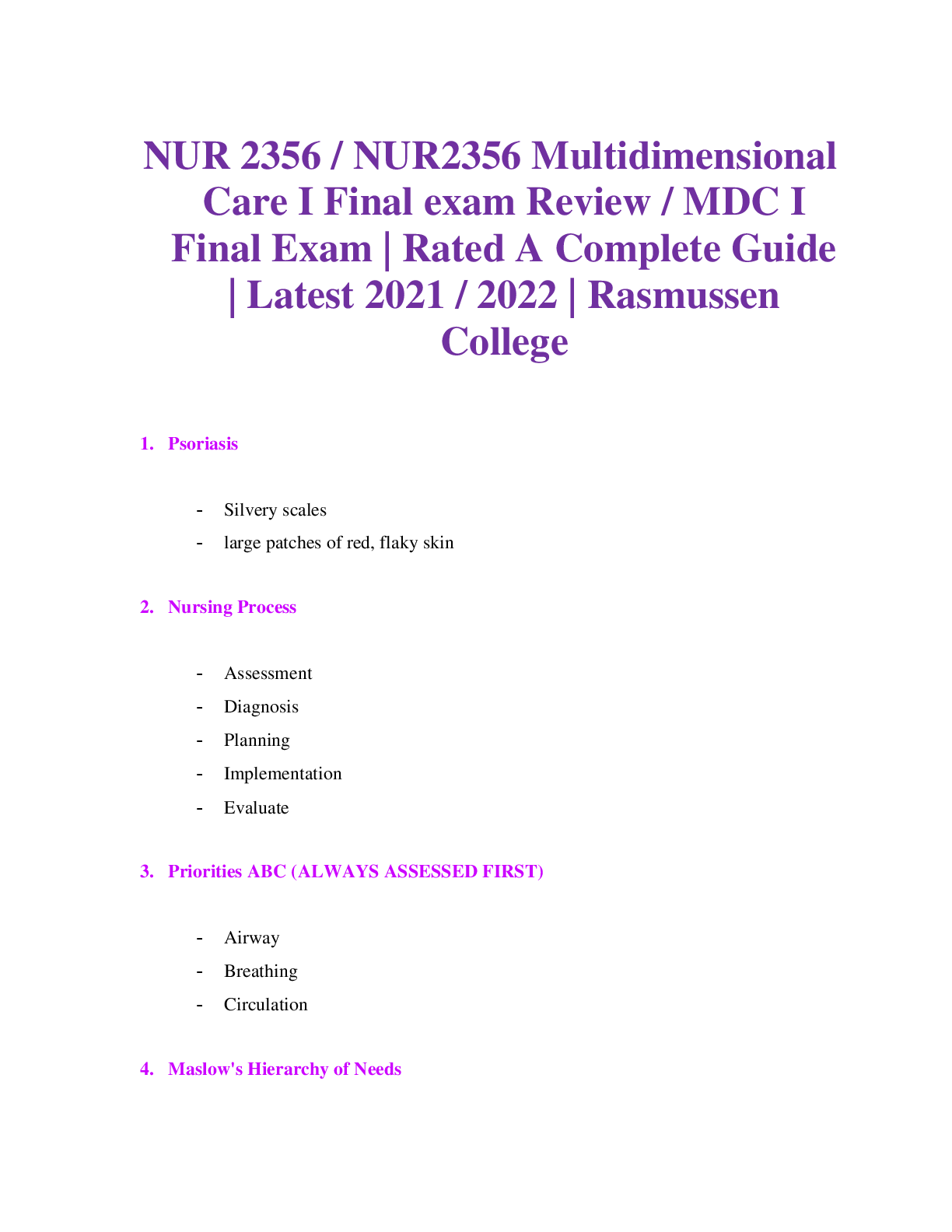
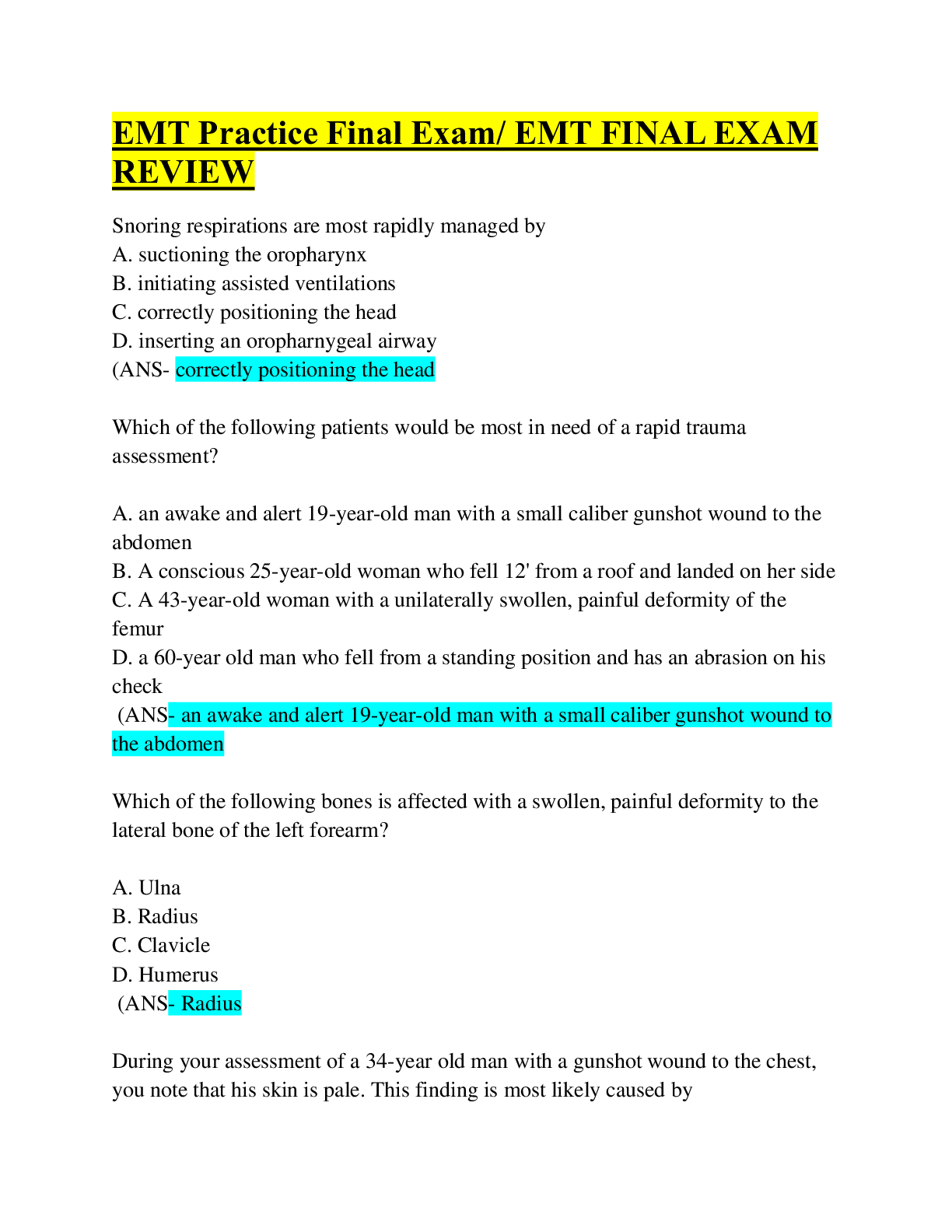
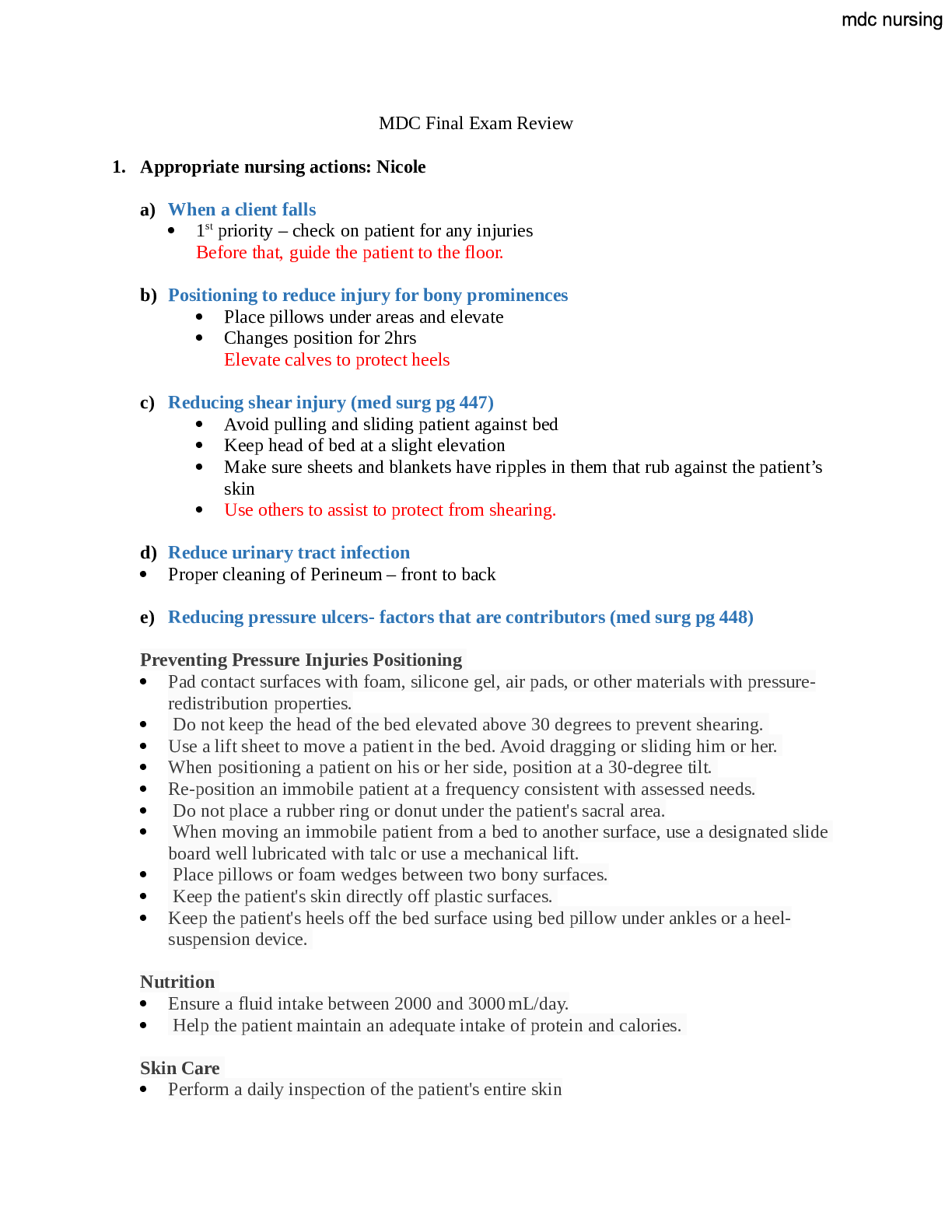
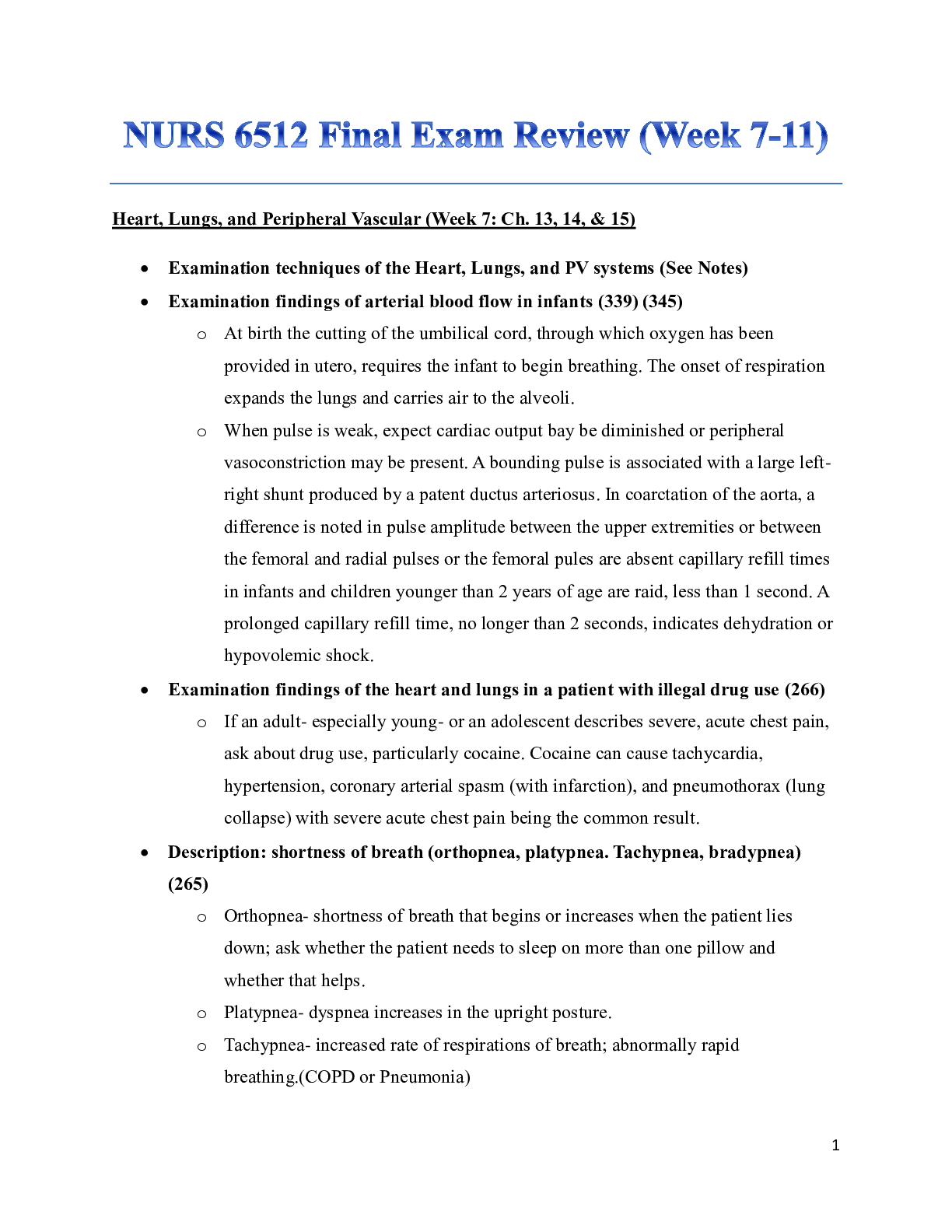
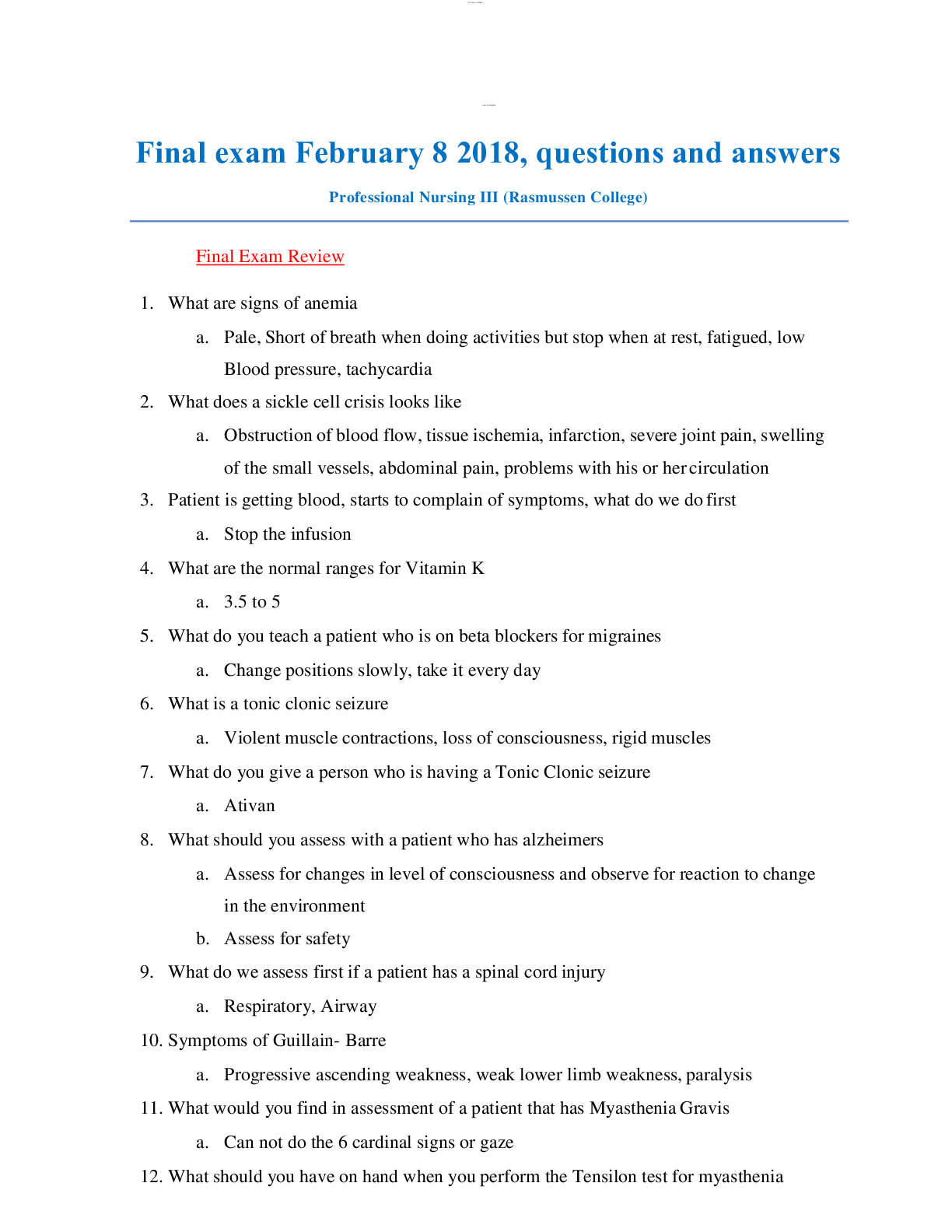
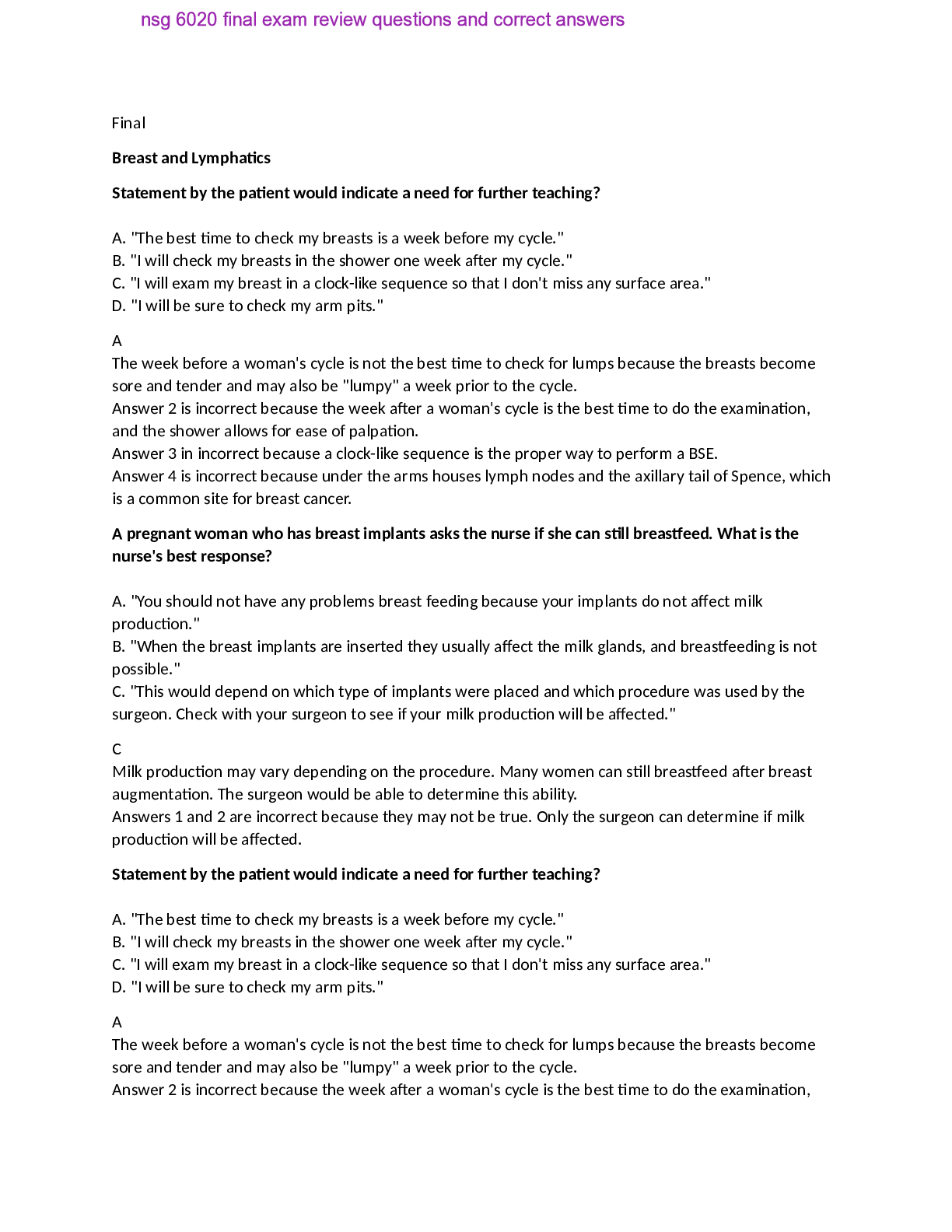

.png)
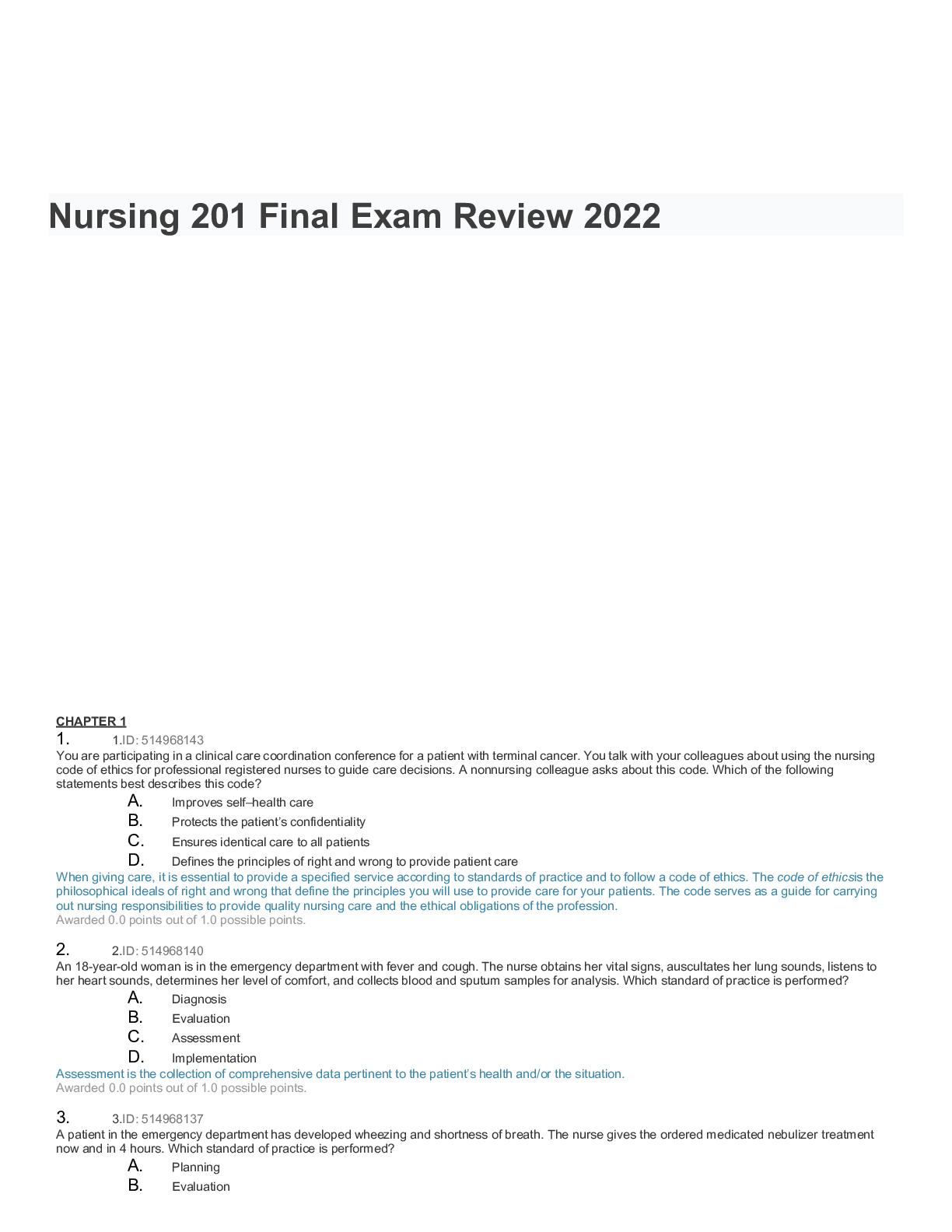
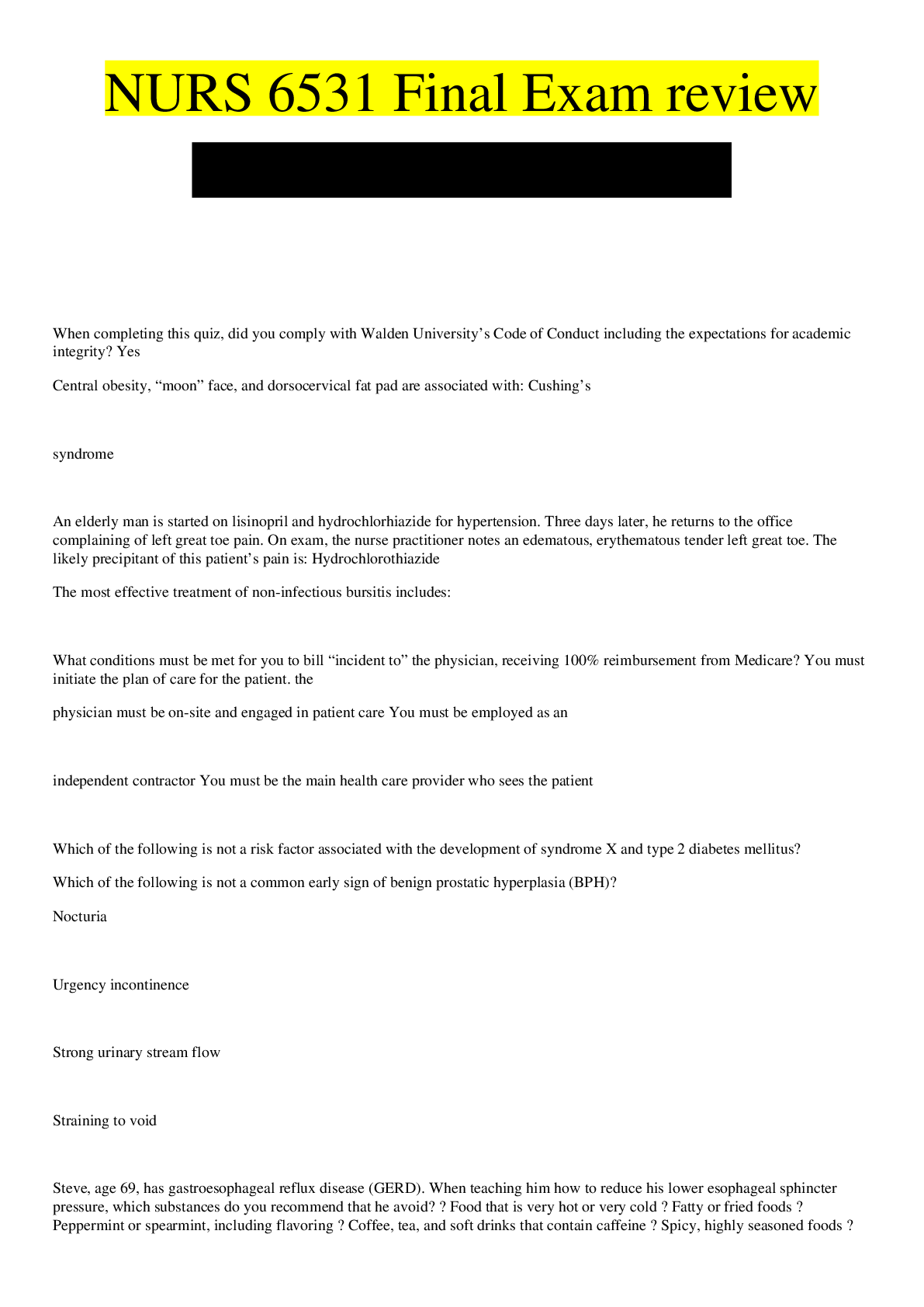
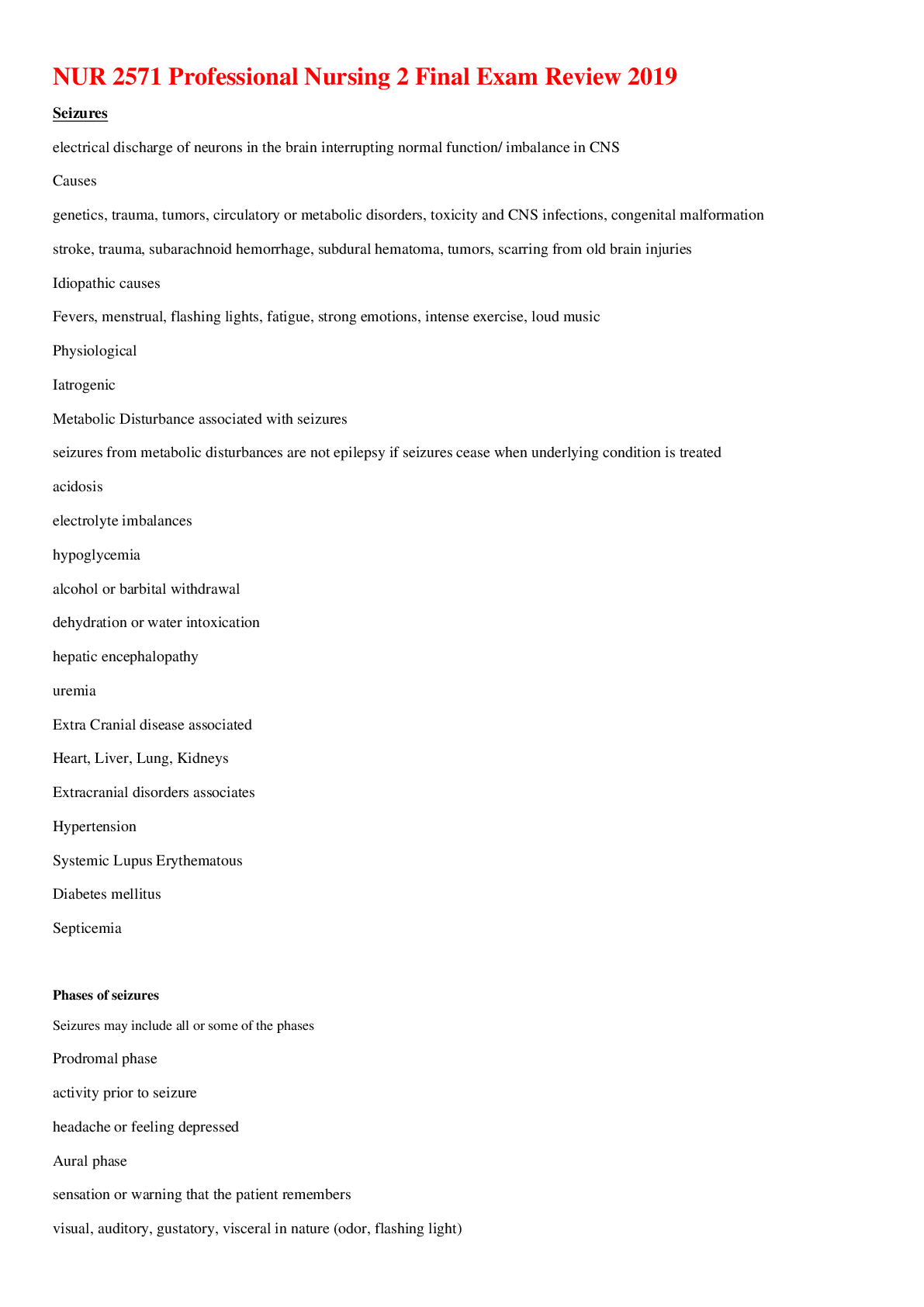

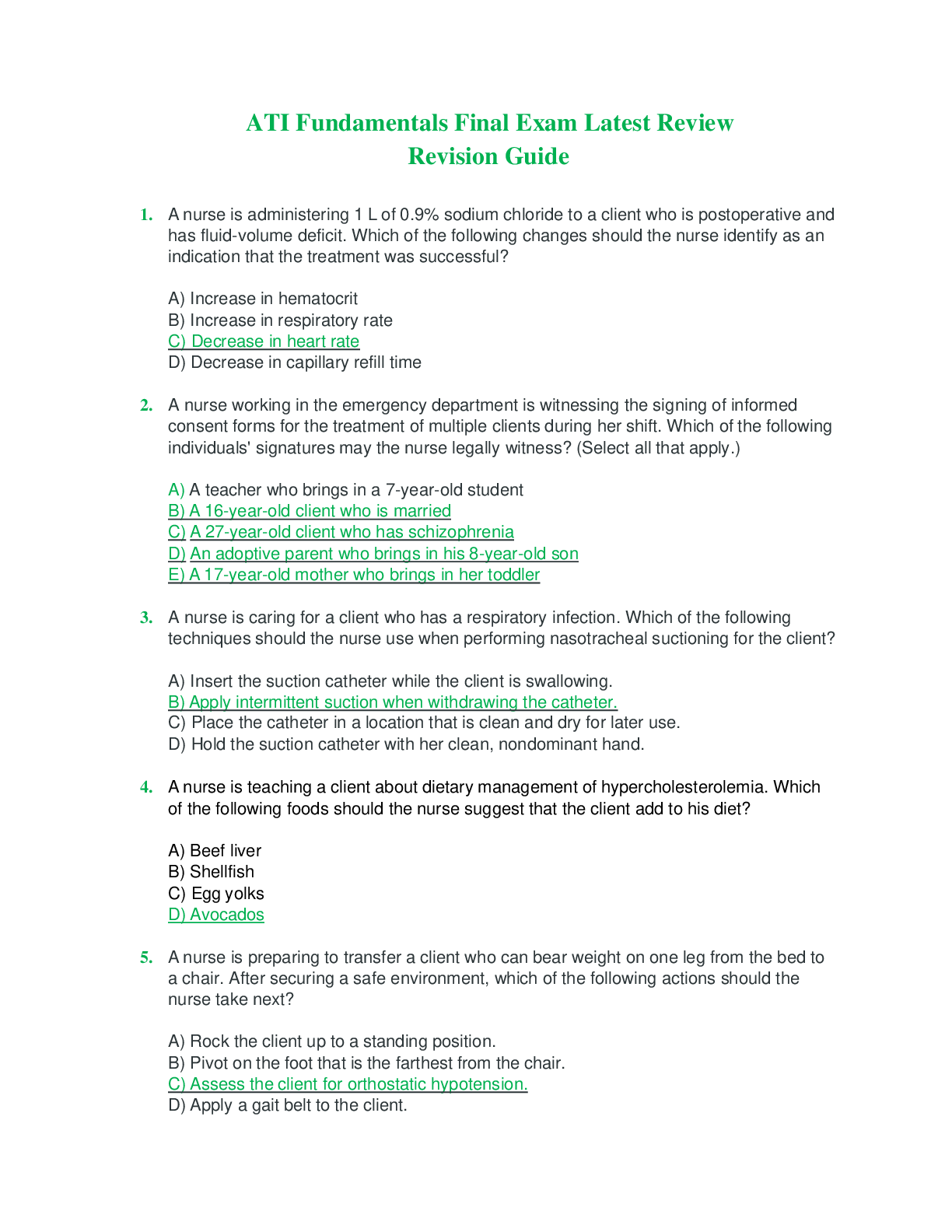
.png)
 (1).png)
.png)
 (1).png)
